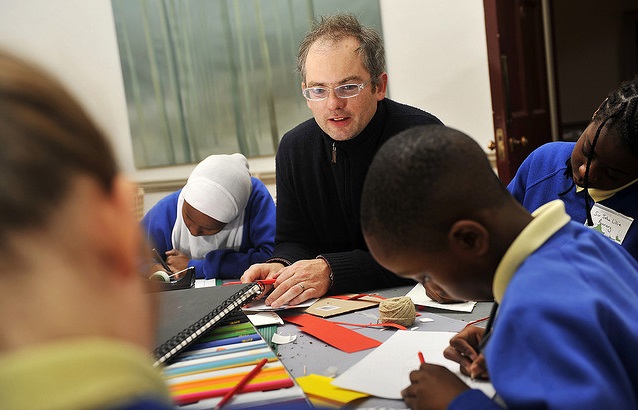
Photo: Hammersmith & Fulham Council (CC BY-NC-ND 2.0) Photo by Leigh Quinnell
Considerable benefits of Creative Partnerships revealed
The outcomes of the biggest and longest running arts education intervention in the world have been documented in a report describing its impact and offering suggestions for future research.
A Critical Review of the research archive generated by national creative education programme ‘Creative Partnerships’ (CP) has concluded that it produced “modest gains in learning” and “considerable benefits” for the wellbeing of young people.
Running in schools in England from 2002 to 2011, CP aimed to transform students’ experiences of school, develop teachers’ classroom approaches and improve school performance. The Review was conducted by the University of Nottingham for the Arts and Humanities Research Council, and provides a summary evaluation of the programme and its outcomes.
It concludes that CP supported “modest gains in learning within formal school curriculum areas, as measured by tests and exams”, but had a much greater impact on pupils’ enjoyment and engagement in school, as reflected in behavioural change such as improvements in attendance and increased motivation. In particular, the programme produced “considerable benefits” for young people in the areas of wellbeing, citizenship and work-related skills and habits. There were also learning gains for teachers through the professional development opportunities on offer.
CP worked intensively with over 5,000 schools across England, ranging from nurseries and pupil referral units to sixth form colleges. 90,000 teachers and more than a million young people were involved in the programme, which was supported by £360m from the DCMS and a further £20m from the Department for Children, Schools and Families. Research and evaluation was commissioned throughout, with all schools that received funding being expected to use an “inquiry approach” to their projects. The main gap identified in the research is a longitudinal study tracking students and teachers learning over time, and the report concludes that “this is something any future national arts-based or cultural programme needs to do”.
When funding cuts brought the CP programme in England to an end, Creative and Cultural Education (CCE), which ran the CP programme, donated the entire research archive to Nottingham University. This comprises records from the schools that participated in the programme from 2008 – 2011; the programmes they designed and implemented and their summary evaluations; copies of all the research and evaluation commissioned by CCE; and additional research reports on related subjects. As part of the process of consolidating the archive, the University team has summarised the major research findings, and access to the whole archive can be obtained through Sue Archbold at CCE.
Join the Discussion
You must be logged in to post a comment.